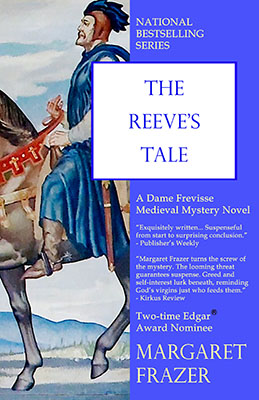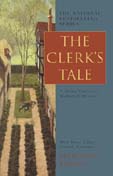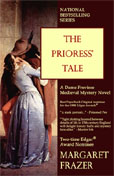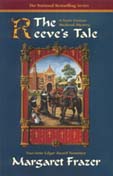 For the curious (or the doubtful), yes, English village government was much as it’s shown here, only far more complex. The villagers themselves ran daily matters, governing themselves in much the way of New England town meetings (whose self-governing skills probably developed from these medieval roots) while dealing with the complex bureaucracies of lord, church, and central government. The cases that come before the village court in Chapter One are all taken directly or derived from actual cases in medieval village court records, down to some of the names remaining the same.
For the curious (or the doubtful), yes, English village government was much as it’s shown here, only far more complex. The villagers themselves ran daily matters, governing themselves in much the way of New England town meetings (whose self-governing skills probably developed from these medieval roots) while dealing with the complex bureaucracies of lord, church, and central government. The cases that come before the village court in Chapter One are all taken directly or derived from actual cases in medieval village court records, down to some of the names remaining the same.
Two books I cheerfully recommend if you want a more detailed, non-fiction look at everyday village life are the scholarlyl but readable Life on the English Manor by H. S. Bennett and The Ties That Bound by Barbara Hanawalt.
The mesels are of course today’s measles, though the word was not applied exclusively that way until well after the 1400s but was used for several different ailments, ranging from measles to leprosy. Mesels as we think of it was considered a children’s version of smallpox, less devastating than the adult kind but potentially lethal nonetheless. My own memory of being horribly sick with them in pre-vaccine days stayed with me darkling enough to be used here – as well as inspiring me to have my own children innoculated against them as early as I could.
Since rashes were – and still are – difficult to tell apart, it was useful that the rash that went with some of the worst forms of plague did indeed form rosy rings, as Mistress Margery observes, and the next time you hear “Ring around the rosy, A pocket full of posy, Atchoo, atchoo, All fall down,” know the sweet little game in a circle with everyone collapsing at the end is hypothesized to be a re-enacting of the Black Death. Sneezing was one of the possible symptoms, and the posies were herbs and flowers hoped to give protection against it. Children, being devastatingly realistic, showed how effective they thought that to be.
And by the way, to be pedantic, no one ever died of the Black Death in the Middle Ages. They died of the Great Pestilence, the Great Death, the Great Plague, but the term “Black Death” seems to come into use only in the early 1800s.




















